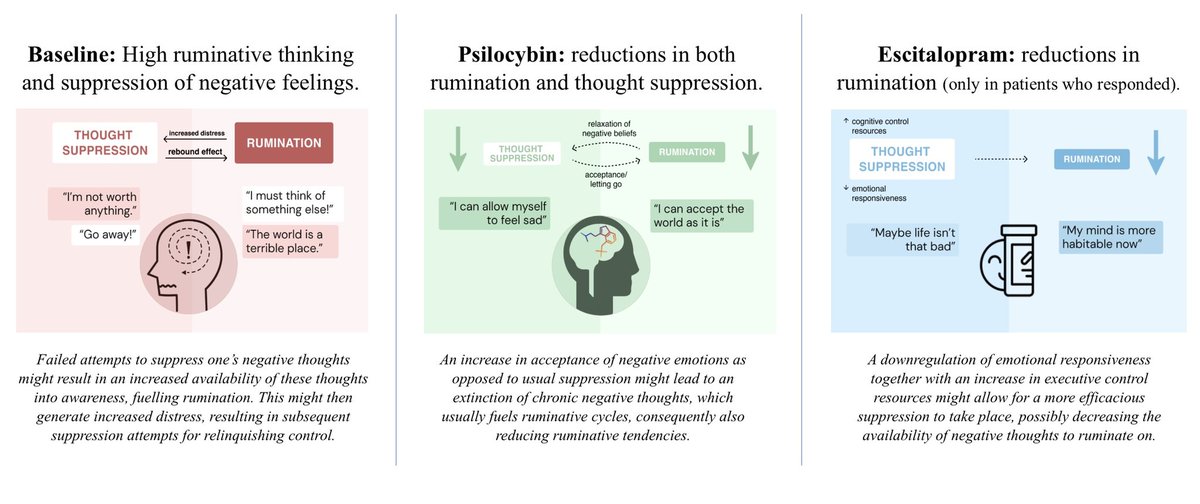1/ The first study on the effects of 2C-B has just been published! 🍭
By comparing 2C-B to #psilocybin it was found that the two drugs induced similar subjective alterations, with 2C-B possessing less experiential depth than psilocybin but greater euphoric and bodily qualities.
By comparing 2C-B to #psilocybin it was found that the two drugs induced similar subjective alterations, with 2C-B possessing less experiential depth than psilocybin but greater euphoric and bodily qualities.

2/ 2C-B was found to elicit significant elevations across most scales outside of auditory alterations, disembodiment, and spiritual experience. However, the overall magnitude of alterations to waking consciousness (total 5D-ASC score) was markedly less than that of psilocybin.
3/ Participants under the influence of psilocybin also reported a greater propensity for affective qualities of altered self-experience (ego dissolution) as well as emotional lability. 

4/ 2C-B appeared to be non-ego-threatening in nature, lacking the otherwise more serious headspace of classical psychedelics while imparting a greater emphasis on visual and tactile domains.
5/ Additionally, 2C-B did not demonstrate significant elevations in most acute markers of negative affect (anger, fatigue, depression) instead producing elevations in vigour, elation, and positive mood in a similar manner to MDMA.
6/ Overall the study supports the idea of 2C-B being a psychedelic with entactogenic properties, possibly possessing some clinical potential for patients apprehensive of macrodoses or at risk of adverse reactions (e.g, high neuroticism). Great work @PIMaastricht @PMallaroni!!
• • •
Missing some Tweet in this thread? You can try to
force a refresh

 Read on Twitter
Read on Twitter








